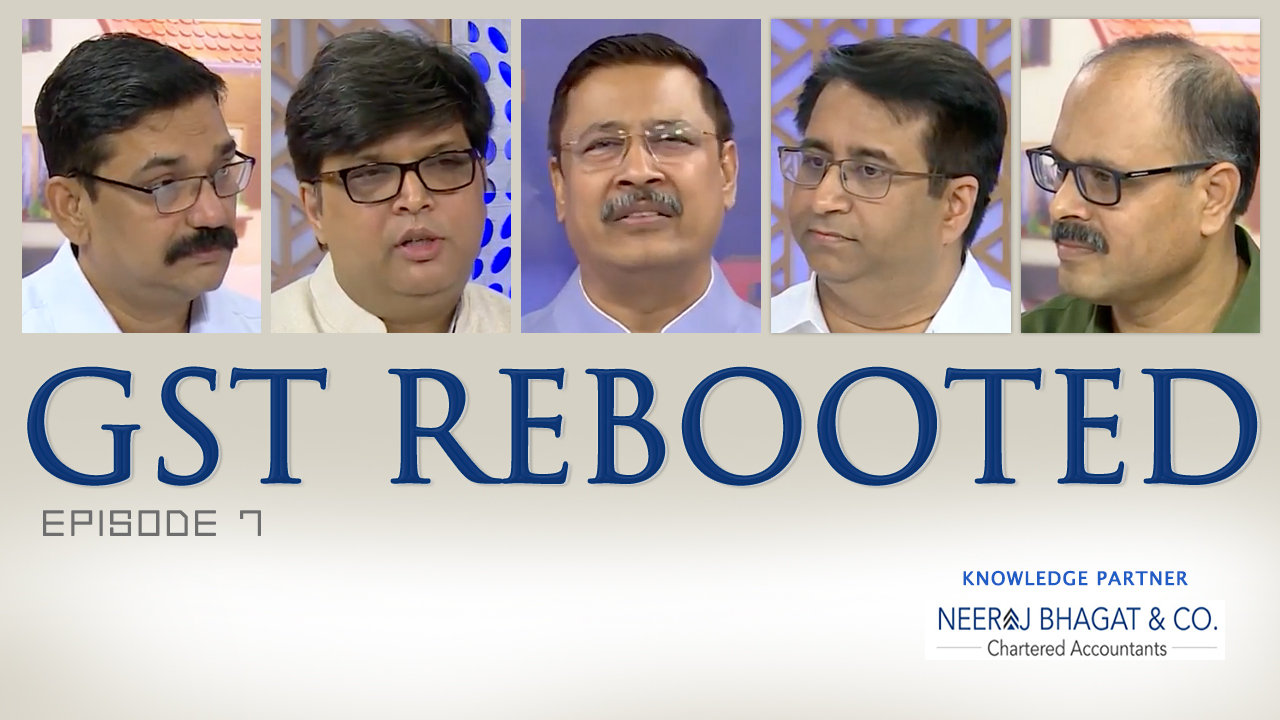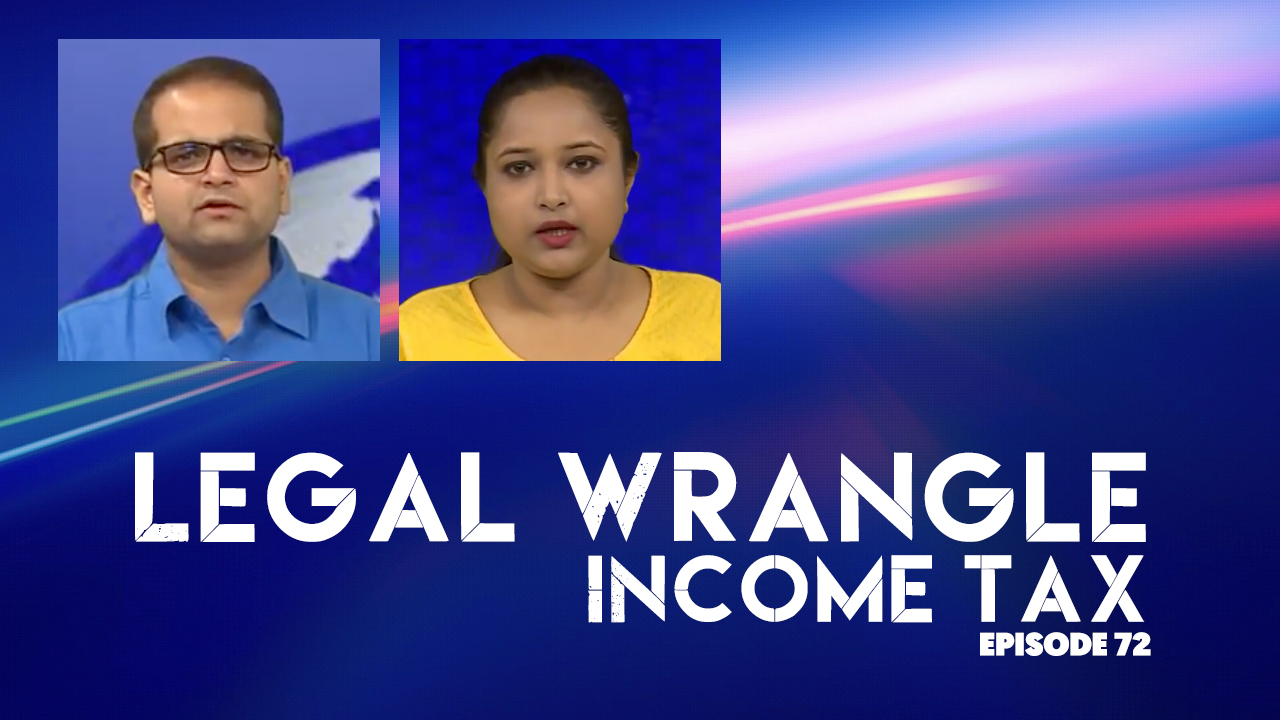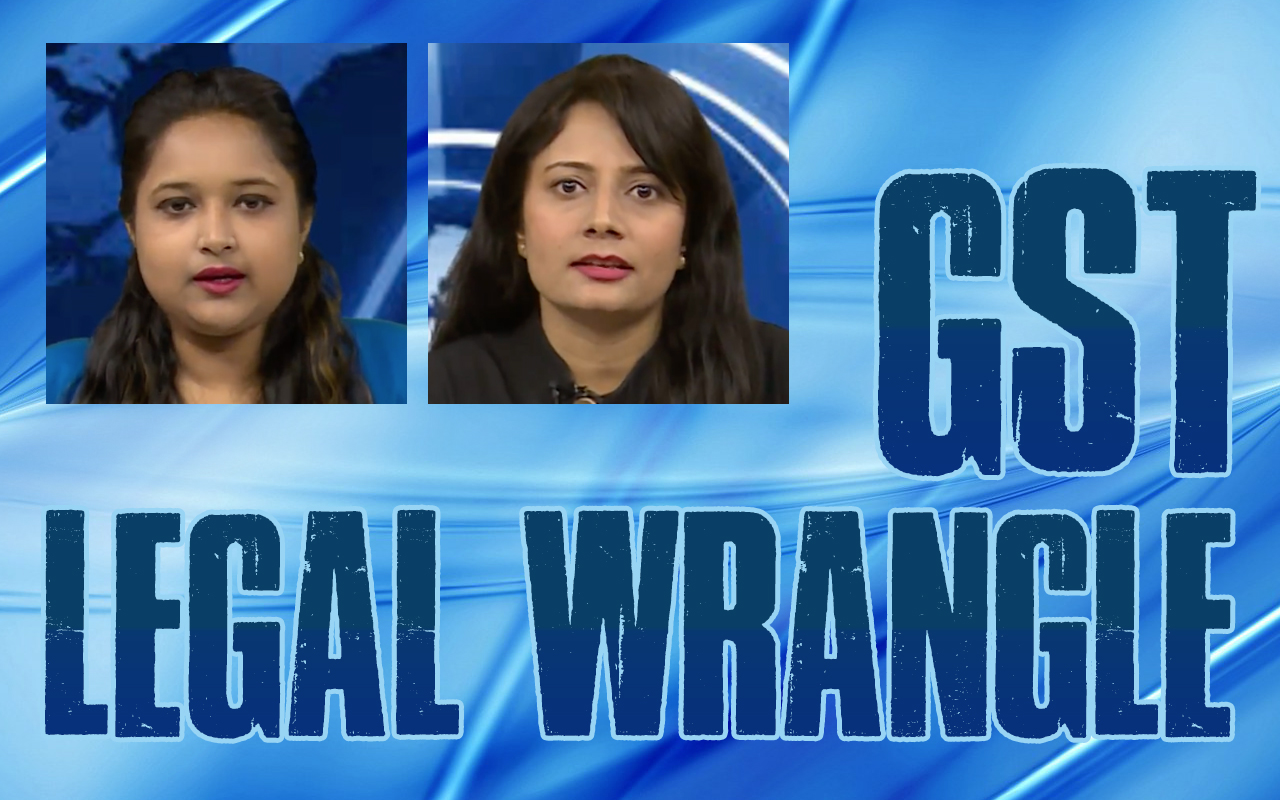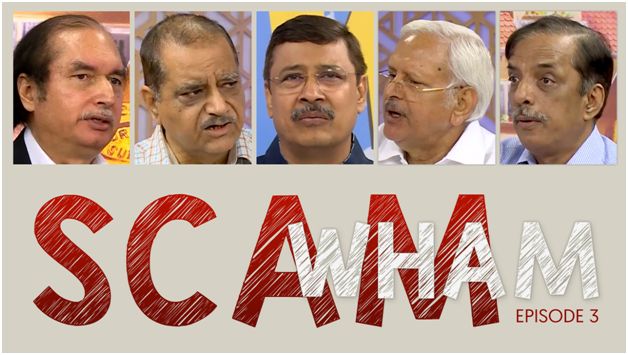SERVICE TAX
2018-TIOL-887-HC-AHM-ST + Case Story
Ranjeet Singh Choudhary Vs UoI
ST – Finance Act, 2016 – section 102 of the Finance Act, 1994 - Petitioner is squeezed between two government departments – Retrospective exemption relating to construction of government buildings – CPWD instead of applying for refund insisted that the petitioner proprietary concern must apply and when the petitioner's application for refund was rejected by the Assistant Commissioner on ground of unjust enrichment, CPWD found a novel way to recover the same from the petitioner by utilizing the petitioner's security deposit, unpaid amounts of final bill and the petitioner's running bills of other contracts and which are wholly impermissible means of recovery - if we allow this situation to prevail, the petitioner would end up losing the service tax component from his profit which in the first place was not the liability of the petitioner - Instead of a case of unjust enrichment, it would be a case of unjust impoverishment - If Asstt. Commr. was of the opinion that the petitioner was not the correct person who can ask for refund, he could have stated so in the order and this would have enabled the petitioner to point out to the CPWD the correct reason for not being able to claim refund of the service tax - Instead, the Assistant Commissioner wrongly applied the principle of unjust enrichment and ordered that the service tax shall be deposited with the Consumer Welfare Fund - In the process, the petitioner ended up bearing the burden of service tax which was not its liability - order of Asstt. Commr. is quashed, however, without disturbing the findings and observations on the allowability of the refund claim - proceedings are placed back before the Asstt. Commr - It would be open for the CPWD to join in the said application as a co-applicant - If so done by 30th June 2018, the competent authority shall decide such application on merits - not the petitioner, but the CPWD can pursue the refund claim - CPWD should release the amounts already adjusted from the petitioner's running bills of the present contract and the security deposit with simple interest @ 7.5% per annum commencing from, after three months of the completion of the execution of the contract till actual payment - Petition disposed of: High Court [para 12, 15, 16, 17, 18, 19, 20] - Petition disposed of
: GUJARAT HIGH COURT
2018-TIOL-1498-CESTAT-DEL
Gola Five Star Banquet Vs CST
ST - Assessee engaged in business of providing party hall on rent and supplying food for functions conducted in said hall and paying Service Tax on services rendered by it, after availing benefit of abatement @40% under Notfn 21/97-ST, as amended under Mandap Keeper Service and under Notfn 20/2004-ST as amended under Outdoor Caterer's Service - However, w.e.f. 01.05.2007, he started paying service tax under taxable category of Renting of Immovable Property Service - Further, assessee stopped paying service tax on activity of catering, which they undertook in their own party hall - Department initiated show cause proceedings against assessee - Assessee had separately claimed charges towards the hall rent and catering services provided to its customers - They had also reflected the value of service as well as sale of food items separately in invoices - Since the Department has not disputed the fact regarding payments of VAT on supply of food, the benefit of Notfn 12/2003 should be available to assessee - Tribunal in cases of Daspalla Hotels Ltd. 2010-TIOL-219-CESTAT-BANG , Sky Gourmet Pvt. Ltd. 2009-TIOL-915-CESTAT-BANG , LSG Sky Chef India Pvt. Ltd. 2009-TIOL-2392-CESTAT-BANG and Chokhi-Dhani Resorts Pvt. Ltd. 2017-TIOL-878-CESTAT-DEL has held that VAT paid on sale of food should not be included in value of service provided and billed separately - Further, the benefit of Notfn 12/2003-ST has also been extended to assessee in those cases - No merits found in impugned order: CESTAT - Appeal allowed
: DELHI CESTAT
CENTRAL EXCISE
2018-TIOL-181-SC-CX-CB + Case Story
CCE Vs Grasim Industries Ltd
CX - Both Section 3 and 4 of CEA, 1944 operate in their respective fields -Measure of the levy contemplated in Section 4 of the Act will not be controlled by the nature of the levy: SC Constitution Bench
Reference answered
Observations by Supreme Court Constitution Bench:-
++ Excise is a levy on manufacture and upon the manufacturer who is entitled under law to pass on the burden to the first purchaser of the manufactured goods.
++ The levy of excise flows from a constitutional authorisation under Entry 84 of List I of the Seventh Schedule to the Constitution of India.
++ The stage of collection of the levy and the measure thereof is, however, a statutory function. So long the statutory exercise in this regard is a competent exercise of legislative power, the legislative wisdom both with regard to the stage of collection and the measure of the levy must be allowed to prevail.
++ The measure of the levy must not be confused with the nature thereof though there must be some nexus between the two. But the measure cannot be controlled by the rigors of the nature.
++ Method of collection does not affect the essence of the duty, but only relates to the machinery of collection for administrative convenience.
++ Value of the article for the purposes of levy of ad valorem duty was with reference to the price i.e. ‘normal price' prior to the 2000 Amendment and thereafter with reference to the ‘transaction value' which has been defined to mean “the price actually paid or payable for the goods, when sold, and includes in addition to the amount charged as price...”
++ The measure for the purpose of the levy is, therefore, essentially the price charged in respect of a transaction which must necessarily be at arm's length. Inclusions and additions that enrich the value of the Article till its clearance are permissible additions to the price that can be taken into account to determine ‘value' under the old Section 4 (prior to 2000) as well as the ‘transaction value' under the amended section effective from 1.7.2000.
++ While such additions have been judicially held to be permissible under the old Act in Bombay Tyre International Ltd. (supra) the very same heads have been statutorily engrafted by the amendment made in 2000.
++ The price charged for a manufactured article at the stage when the article enters into the stream of trade in order to determine the value/transaction value for computation of the quantum of excise duty payable does not come into conflict with the essential character or nature of the levy.
++ The measure is the value and value is related to price. The price charged at the stage of clearance, in addition to manufacturing cost and manufacturing profit, can include certain value additions and inclusions which enrich the value of the product to make it suitable for sale or to facilitate such sale. At this stage, impost has nothing to do with the sale. The impost is on manufacture. But it is the value up to the stage of the first sale that is taken as the measure. Doing so does not introduce any inconsistency between the nature and character of the levy and the measure adopted.
++ Excise duty can be levied only on the manufacturing cost plus the manufacturing profit only.
+ The amendment of Section 3 to the Act not only incorporates the essentials of a changed concept of charging of tax on additions to the value of goods and services at each stage of production but also engrafts in the statute what was judicially held to be permissible additions to the manufacturing cost and manufacturing profit in Bombay Tyre International Ltd. (supra). This fundamental change by introduction of the concept underlying value-added taxation in the provisions of Section 3 really find reflection in the definition of ‘transaction value' as defined by Section 4(3)(d) of the Act besides incorporating what was explicitly held to be permissible in Bombay Tyre International Ltd. (supra).
++ Observations made in paragraph 84 of the decision (in Acer India Ltd.) to the effect that “transaction value” defined in section 4(3)(d) of the Act will be subject to the charging provisions contained in section 3 of Act would have to be viewed in the context of the situation where an addition of the value of a non-dutiable item was sought to be made to the value of a dutiable item for the purpose of determination of the transaction value of the composite item - it is in this limited context in which the subservience of section 4(3)(d) to section 3 was expressed and had to be understood.
++ The measure of the levy contemplated in Section 4 of the Act will not be controlled by the nature of the levy. So long as a reasonable nexus is discernible between the measure and the nature of the levy, both Section 3 and 4 would operate in their respective fields.
++ “Transaction value” as defined in Section 4(3)(d) brought into force by the Amendment Act, 2000, statutorily engrafts the additions to the ‘normal price' under the old Section 4 as held to be permissible in Bombay Tyre International Ltd. (supra) besides giving effect to the changed description of the levy of excise introduced in Section 3 of the Act by the Amendment of 2000.
++ There is no discernible difference in the statutory concept of ‘transaction value' and the judicially evolved meaning of ‘normal price'. - Reference answered :
SUPREME COURT OF INDIA
2018-TIOL-1497-CESTAT-DEL
Autolite India Ltd Vs CCE
CX - Assessee has two units in Jaipur - Unit-I is a 100% EOU engaged in manufacture of Halogen Bulbs as well as Halogen Capsules - In addition to export, a part of Halogen Capsules manufactured by Unit-I were cleared to Unit-II for further manufacture of Halogen Lamps, for domestic market - Investigations were undertaken against Unit-I as well as Unit-II by paying a surprise visit to said units and recovery of documents - Crux of case is on two allegations namely; goods cleared by Unit-I (100% EOU) to Unit-II (DTA) were undervalued and that some goods were cleared clandestinely without payment of duty from Unit-I to Unit-II - As regards to charge of undervaluation, The entire basis for rejecting transaction value is the relationship between them - Merely because the two units are related persons, same would not ipso facto be the ground for rejecting transaction value - It is settled position of law that unless the transaction value is rejected for valid and cogent reasons, the value of imported goods cannot be re-determined - It has been held by Supreme Court in case of South India Television (P) Ltd. 2007-TIOL-126-SC-CUS that before rejecting the transaction value as incorrect or inacceptable, Department has to find out whether there are any imports of identical goods or similar goods at a higher price at around the same time - Unless the evidence is gathered in that regard, question of rejecting the transaction value and determination of value as per Valuation Rules does not arise - In such circumstance the invoice price has to be accepted as transaction value - Consequently, demand for differential duty on charge of undervaluation set aside.
With regard to charge of clandestine clearance, during visit of departmental officers, a note book "MONARK' was recovered from Unit-II which indicated receipt of Halogen Bulbs and Halogen Capsules from Unit-I - The author of private note book was Sh. Satyanarayanan, Store Keeper - No statement found recorded from him on record but departmental officers has recorded the statement of Sh. Kailash Kumar Sharma of Unit-II in which he admitted that said diary contained the receipt of Halogen Capsules and Halogen Bulbs received from Unit-I - Some of entries found in note book did not have corresponding invoices and evidence of payment of duty - On basis of these statements, Department has alleged that quantity of goods mentioned in private records, which were not co-related with duty paying invoices, were transferred clandestinely without payment of duty - Other than submissions of person, there is no corroborative evidence on record to substantiate the stand of Department that goods reflected in diary titled as "MONARK" were clandestinely cleared - No discrepancies have been noticed in respect of quantity of raw material or finished goods vis-a-vis statutory documents - Consequently, charge of clandestine clearance cannot be upheld only on basis of seized private record especially in view of fact that statements admitting clandestine clearance of such goods stand reflected: CESTAT - Appeals allowed: DELHI CESTAT
2018-TIOL-1496-CESTAT-MUM
Uni Abex Alloys Products Ltd Vs CCE
CX - CENVAT - Rule 2(l) of CCR, 2004 - Corporate service, professional fees paid for conducting e-auction (for purchase of raw materials), ambulance service, medical treatment, health check-up of employees are Input Services and credit of tax paid thereon is admissible as CENVAT credit; however, as regards civil work, no documents were provided by appellant indicating the nature of service and use thereof - denial of credit to that extent is upheld - Appeal partly allowed: CESTAT [para 5] - Appeal partly allowed: MUMBAI CESTAT
CUSTOMS
NOTIFICATIONS
cnt40_2018
CBIC assigns the functions of proper officer for the purposes of section 17 and section 28 of the Customs Act, 1962
cnt39_2018
For carrying out audit under section 99A of Customs Act, 1962, officers appointed by CBIC
cnt36_2018
Bill of Entry Regulations, 2011 superseded - CBIC issues Bill of Entry (Electronic Integrated Declaration and Paperless Processing) Regulations, 2018
CASE LAWS
2018-TIOL-1495-CESTAT-ALL
Alam Vs CC, CE &ST
Cus - Appeals have been preferred against impugned order confirming absolute confiscation of eight pieces of Foreign Origin Gold Bar bearing "Suisse" mark with 999.9 purity without any serial numbers, collectively weighing 933.120 gms and also penalty under Section 112(b)(i) of Customs Act, 1962 - It is an admitted case of Town Seizure of Gold - Gold was seized by Police who are not the Customs Officers - Although the assessee Mohd Waseem had given a plausible explanation as to the licit import of gold but the same could not be strongly supported by him in absence of examining his witnesses and or producing his witnesses before the Revenue in adjudication proceedings - Further, in the circumstances although the case of smuggling is not made out, but assessee Mohd Waseem have failed to discharge the onus under Section 123 of Customs Act, as to the licit import of the gold originally seized by Police Officers and subsequently seized by Customs Authority - Further, gold is otherwise importable on payment of appropriate duty and is not prohibited - Thus, the appeal of Mohd Waseem is allowed in part and appeal of others are allowed - On payment of duty and fine, the gold be released forth with: CESTAT - Appeals partly allowed: ALLAHABAD CESTAT
2018-TIOL-1494-CESTAT-DEL
Solar Industries India Ltd Vs UoI/DA
Anti-Dumping - the DGAD receved representations from two domestic firms seeking imposition of anti-dumping duty on Ammonium Nitrate imported from Russia, Indonesia, Georgia & Iran - Upon investigation, th DGAD gave its findings recommending Anti-dumping duty on the items in question - The same were accepted by the Govt which imposed such ADD - The present appeals were filed by the importers of the subject goods - One appeal is filed by an exporter on grounds that individual duty was not fixed for the exports made -
Held - The impact of the subject goods upon the Domestic Industry (DI) has been established - The DI was compelled to reduce its prices & was unable to raise them - Its performance in terms of production and sales in India deteriorated - It suffered in terms of market share, inventories, profit, cash profits & return on investment - Besides, Net Sales Realization (NSR) is not the only parameter to determine injury - Hence the ADD is correctly imposed - Further, regarding fixation of individual duty liability, the appellant-exporter is not the actual exporter and is part of a trade chain - Since the ultimate exporter was non-cooperative in the investigation, individual liability could not be fixed - Hence the appeals lack merit: CESTAT (Para 2,10-13) - Appeals Dismissed: DELHI CESTAT
2018-TIOL-1493-CESTAT-MAD
Vedanta Ltd Vs CC
Cus - the assessee was issued an SCN alleging misuse of Advance License & evasion of Customs duty - In writ before the High Court, the assessee claimed that an SCN had earlier been issued to it by the Excise authorities on similar allegations - The assessee claimed the present SCN to be a verbatim copy of the earlier SCN - When the High Court held against the assessee, it approached the Apex Court, which directed the Commr. to pass O-i-O after adjudication of SCN - When the assessee requested the adjudicating authority to allow access to certain documents and also to cross examine certain witnesses, both requests were denied - Hence the present appeal -
Held - The issue of denying cross examination stands settled in various decisions of the Tribunals & High Courts - Hence the Department is directed to follow the provisions u/s 138B of the Customs Act and permit cross-examination of witnesses by the assessee - Regarding the rejection of request to supply documents, it is seen that the assessee did not request for any particular document - In fact the assessee obtained copies of two documents by filing an RTI application - It coud easily have obtained the rest by filing another RTI application or approaching the FAA under the RTI Act - Without specifying any particular document, the assessee's grievance on this ground is very vague and cannot be entertained: CESTAT (Para 2,11,12) - Appeal Partly Allowed: CHENNAI CESTAT
|








